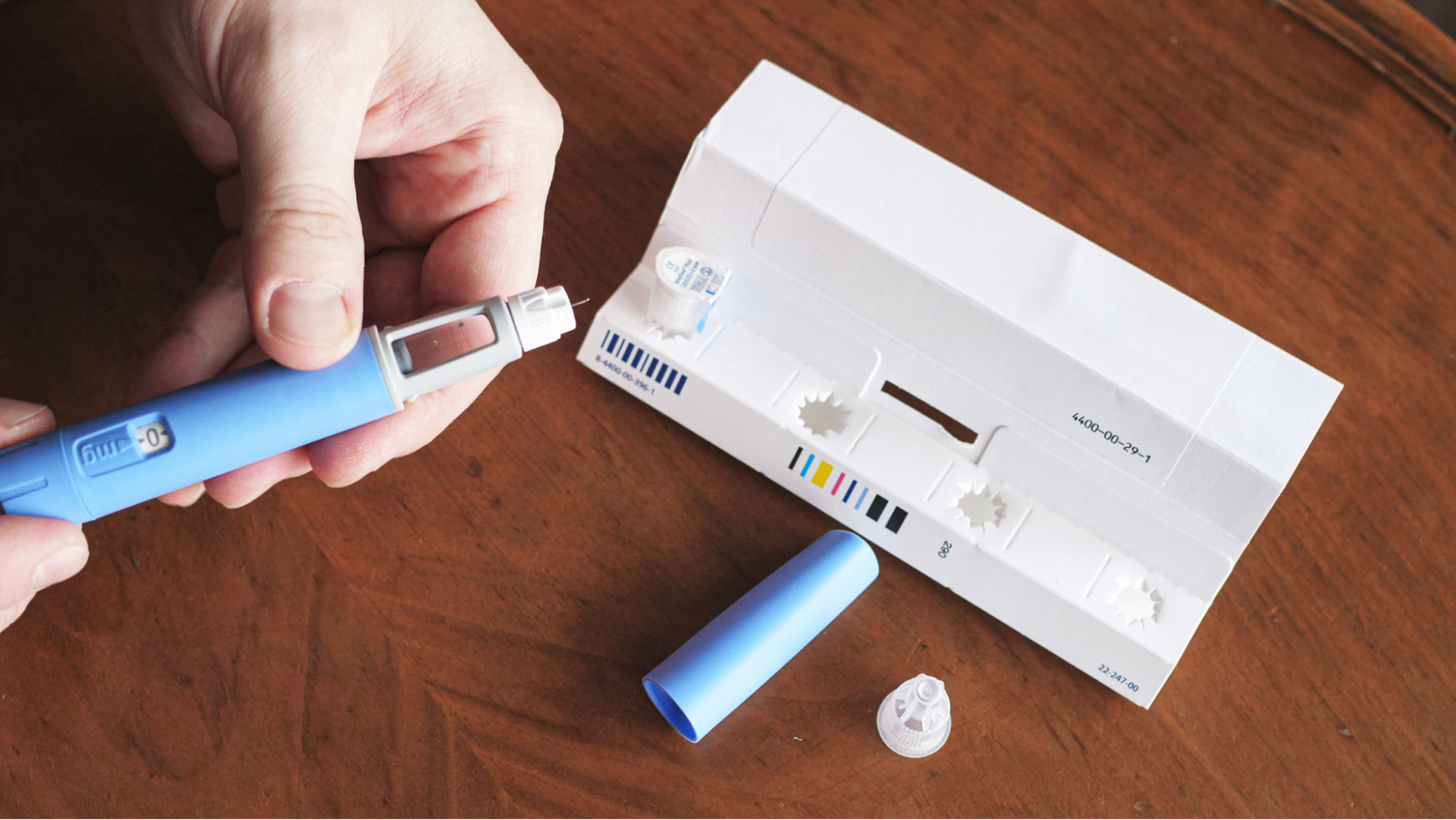360 Surgery Health Blog

Understanding the Hidden Impact of Processed Foods on Your Health and Metabolism If you 're on a weight loss journey, one of the most important decisions you can make is to avoid ultra-processed foods (UPFs). These foods are widely consumed due to their convenience and taste—but they pose a major obstacle to effective weight management and long-term health. What Are Ultra-Processed Foods? Ultra-processed foods are industrially manufactured products that include: Additives, emulsifiers, and preservatives Artificial flavours and colours Refined sugars and fats Little to no whole food content Common examples include packaged snacks, soft drinks, fast food, sweetened breakfast cereals, processed meats, and ready-made meals. How Ultra-Processed Foods Affect Weight Loss Research has consistently linked UPFs to obesity, type 2 diabetes, inflammation, and metabolic dysfunction (Monda et al., 2024; Hall et al., 2019). Here's why: 1. Excessive Calorie Intake UPFs ar e hyper-palatable, meaning they're engineered to taste extremely good. This makes them easy to overeat. Studies have shown that people consuming UPF-heavy diets consume significantly more calories daily than those eating a whole-food-based diet (Hall et al., 2019). 2. Poor Nutritional Quality These foods are typically: High in added sugars, unhealthy fats, and sodium Low in fibre, protein, vitamins, and minerals This nutritional imbalance means you're consumin g "empty calories"—high energy with little nourishment—leading to ongoing hunger and overeating. 3. Disrupted Hunger and Satiety Signals UPFs interfere with your body’s natu ral appetite regulation. They don’t promote satiety the way whole foods do, especially because they lack protein and fibre, which are key for feeling f ull. This leads to frequent snacking and difficulty controlling portion sizes. 4. Metabolic Dysfunction and Insulin Resistance Regular UPF consumption is associated with: Insulin resistance – a major factor in weight gain and difficulty losing fat Inflammation – which impairs hormonal and metabolic function Altered gut microbiota – which slows metabolism and weakens digestion These factors make it harder for your body to burn fat and maintain stable blood sugar levels. 5. Blood Sugar Spikes and Crashes UPFs contain refined carbohydrates and sugars that cause rapid increases in blood glucose. These are often followed by sudden drops, which trigger: Sugar cravings Fatigue Mood swings More food intake This cycle keeps you in a loop of overeating and low energy, derailing your weight l oss efforts. 6. Increased Risk of Chronic Disease Beyond weight gain, long-term consumption of ultra-processed foods increases your risk of: Type 2 diabetes Heart disease Fatty liver disease Depression These risks are heightened in people already dealing with obesity or insulin resistance. Why Whole Foods Support Sustainable Weight Loss Replacing UPFs wit h whole, minimally processed foods can dramatically improve your health and make weight management easier. Focus on: Lean proteins – chicken, fish, eggs, legumes High-fibre vegetables and fruits – spinach, broccoli, berries, apples Whole grains – oats, quinoa, brown rice Healthy fats – avocado, nuts, seeds, olive oil Whole foods provide nutrients that sup port stable blood sugar, metabolic health, and long-term satiety. Evidence-Based Benefits of Reducing UPFs According to Monda et al. (2024), individuals who significantly reduce their intake of ultra-processed foods and transition to whole-food diets experience: Better appetite control Improved insulin sensitivity Reduced inflammation Lower daily calorie intake More consistent weight loss over time Tips for Reducing Ultra-Processed Foods Read ingredient labels : Avoid foods with long ingredient lists or unfamiliar chemical names. Cook at home : Preparing meals yourself gives you control over ingredients. Shop the perimeter : Stick to fresh produce, meat, dairy, and grains. Plan your meals : Reduce reliance on convenience foods by planning your week. Swap wisely : Choose plain yogurt over sweetened, or wholegrain crackers instead of chips. Avoiding ultra-processed foods is one of the most effective changes you can make for successful, sustainable weight loss. While these products may be convenient, their impact on metabolism, hunger regulation, and overall health is profoundly negative. Choosing a nutrient-dense, whole-food diet will not only help you reach your weight loss goals but also reduce your risk of chronic disease and improve your quality of life.

GLP-1 receptor agonists such as Wegovy® (semaglutide) and Mounjaro® (tirzepatide) are powerful tools for long-term weight management. They work by regulating appetite, improving insulin sensitivity, and slowing stomach emptying. However, like any medication, they may cause side effects, particularly during the first few weeks of treatment. At 360 SURGERY Melbourne, we help patients achieve their health goals safely and effectively. Here are some practical tips to manage the most common side effects of GLP-1 medications, so you can stay on track with your weight loss journey. 1. Nausea Nausea is one of the most reported side effects of GLP-1 medications, especially when doses are increased. These strategies may help: Eat smaller, more frequent meals : Large meals can trigger nausea. Avoid fatty or spicy foods : These can irritate your stomach further. Stay well-hydrated : Sip water or herbal teas slowly throughout the day. Choose bland foods : Toast, rice, and crackers are easier to tolerate. Take your injection at bedtime : This can reduce awareness of nausea during the day. 2. Diarrhoea This is typically mild and short-term but can be managed with the following tips: Stay hydrated : Replenish fluids and electrolytes to prevent dehydration. Follow a low-fibre diet temporarily : Stick to easy-to-digest foods like bananas, applesauce, rice, and toast (the BRAT diet). Avoid caffeine and alcohol : These irritants can worsen diarrhoea. Try probiotics : They may support gut health and digestive balance. 3. Constipation Constipation may occur as your digestive system adjusts. The following can help: Increase fibre intake : Add fruits, vegetables, and whole grains to your meals. Stay physically active : Regular movement promotes bowel motility. Drink plenty of water : Fluid intake is key for regular bowel movements. Use a fibre supplement : Products like psyllium husk may provide relief. 4. Stomach Pain or Cramps Abdominal discomfort can occur, particularly after meals. Try the following: Eat slowly and chew thoroughly : This supports smoother digestion. Avoid lying down immediately after eating : Wait 1–2 hours before reclining. Use a warm compress : Applying heat to the abdomen may reduce cramping. Consult your doctor if pain persists : Persistent or severe pain may indicate a more serious issue such as pancreatitis. Seek medical review promptly. 5. Headaches Headaches may occur during the adjustment phase and are often linked to hydration or blood sugar changes. Stay hydrated : Dehydration is a common trigger for headaches. Rest in a dark, quiet room : Reduces stimulation and allows recovery. Use over-the-counter pain relief : Paracetamol is generally safe, but check with your doctor. 6. Fatigue or Low Energy Feeling tired or lethargic can be frustrating. These tips may help restore energy: Prioritise good sleep hygiene : Stick to a regular sleep schedule and minimise screen time before bed. Balance activity and rest : Light movement (like walking) can improve energy levels. Monitor blood sugar levels : Hypoglycaemia may occur in some cases—especially if you’re on other medications. Discuss with your doctor if necessary. 7. Injection Site Reactions Mild swelling, redness, or discomfort at the injection site is common. Rotate injection sites : Avoid using the same area repeatedly. Apply an ice pack : Before and after the injection to reduce swelling. Keep the area clean : Prevents infection or irritation. How to Stay on Track with Your GLP-1 Treatment Mild side effects are common and often improve over time. The key is to remain consistent with your medication and use supportive strategies to manage symptoms. A t 360 SURGERY, we specialise in bariatric surgery and medical weight loss in Melbourne. Our team offers tailored support to help you navigate side effects, adjust your plan, and achieve long-term results safely. When to Seek Medical Advice Always contact your healthcare provider if: Side effects persist or worsen You experience severe abdominal pain You have signs of dehydration (dizziness, dry mouth, dark urine) You notice signs of an allergic reaction (rash, swelling, shortness of breath) Contact 360 SURGERY Melbourne If you’re using Wegovy or Mounjaro and experiencing side effects, speak to our team today. We’ll provide personalised guidance to help you manage your medication safely and effectively.

Navigating the costs of private healthcare—especially for a procedure like bariatric surgery—can feel overwhelming. Even with private health insurance, most patients are surprised to learn that out-of-pocket expenses still apply. This guide helps you understand what you’re likely to pay when undergoing weight loss surgery in Melbourne, and how to prepare financially. Two Categories of Bariatric Surgery Costs To make things easier, we’ll break down the costs into two main areas: Out-of-hospital costs In-hospital costs Out-of-Hospital Costs These are the costs incurre d before you’re admitted to hospi tal and include consultations, referrals, and diagnostic testing. GP and specialist appointments: Medicare covers a portion of these visits, but if your providers charge above the Medicare rebate, you'll be required to pay th e gap (out-of-po cket cost). Non-MBS services: Services s uch as dietitian consultations, psychologist sessions, or physiotherapy may not be listed on the Medicare Benefits Schedule (MBS), meaning you’ll need to pay the full amount. Pre-operative tests: The good news is that most standard blood tests, imaging, and other required diagno stics are typically bulk-billed, especially if referred by your GP or surgeon. In-Hospital Costs These are the costs associated with the surgical procedure and hospital stay. Bariatric surgeon fees: Most surgeons charge a gap fee in add ition to what Medicare or your insurer pays. Anaesthetist and surgical assistant fees: Both may bill separately and usually charge a gap not covered by your insurance. Hospital stay: This is often the most significant cost. The amount depends on your insurance policy—including your excess, co-payments, and whether your hospital is a preferred provider. If you do not have private health insurance, you’ll be responsible for the full cost of the hospital stay, which can range from thousands to tens of thousands of dollars depending on the facility and length of stay. How to Pay Out-of-Pocket Costs (The ‘Gap’) Even if you're insured, you will likely still fac e gap fees. It’s im portant to plan ahead. Here are some common ways to manage these costs: Personal savings: Using your own funds can avoid interest or fees associated with loans. Early release of superannuation: You m ay be eligible to access your superannuation early on compassionate grounds to pay for m edical treatment, including bariatric surgery. This involves applying to the ATO with medical certification. Medical loans and financing: Organisations such as TLC (Total Lifestyle Credit) provide personal loans tailored for medical expenses. These loans can cover surgeon fees, hospital costs, and more. What Is Informed Financial Consent? Before committing to surgery, it’s essential to ask for a written cost estimate from each provider involved in your care. This includes: Your bariatric surgeon The anaesthetist The hospital Any other specialists involved (e.g., physician, dietitian) This process is call ed informed financial consent and ens ures you: Know what you’re paying for Understand what your insurance will cover Avoid surprise bills after surgery Alway s ask questions and clarify anything you don’t understand. Key Takeaways Bariatric surgery in Melbourne involves out-of-pocket costs even if you have private insurance. Costs are divided into out-of-hospital and in-hospital components. Expect to pay gap fees for surgeon, anaesthetist, hospital stay, and any non-MBS services. You can use personal funds, early access to superannuation, or personal loans to manage these costs. Always request informed financial consent with a detailed cost estimate before undergoing surgery. While bariatric surgery is a life-changing investment in your health, it’s important to go in with clear financial expectations. Knowing what’s covered, what isn’t, and how to fund your care ensures a smoother journey to better health.















